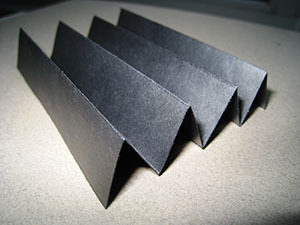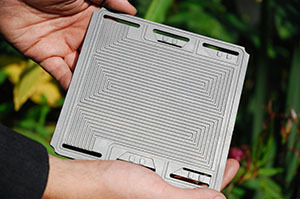


Newly developed materials and alternative
technological concepts play a central role in the sustainable use of the resource water. Innovative processes in the field of sustainable wastewater treatment are so-called microbial electrochemical technologies (MET). MET utilize electrochemically active microorganisms to treat the organic pollutant load in wastewater, while converting part of the inherent chemical energy directly into electrical energy or into chemical energy carriers. In this project, MET will be further developed towards economic installation and operation. The development of a novel paper-based material for the production of three-dimensional high surface area-to-volume ratio electrodes and the optimization of hydrocarbon-based cation-exchanger membranes (CEM) are decisive factors for increasing the performance per cost of MET.

The protection of water resources and the reduction of all wastewater emissions require a closed-loop cycle for (process) water streams or an effective treatment of the wastewater. The problem with industrial and other water streams is the accumulation of impurities which need to be removed. In this project, an electrochemical process is being developed which mineralizes organic substances to a great extent. Especially non-biodegradable compounds, toxic ingredients and endocrine disruptors can be eliminated with this method. Being strong oxidizing agents, the OH radicals used can completely mineralize these substance classes.
Photo credits: v.o. ©Papiertechnische Stiftung ,© Eisenhuth GmbH und Co. KG